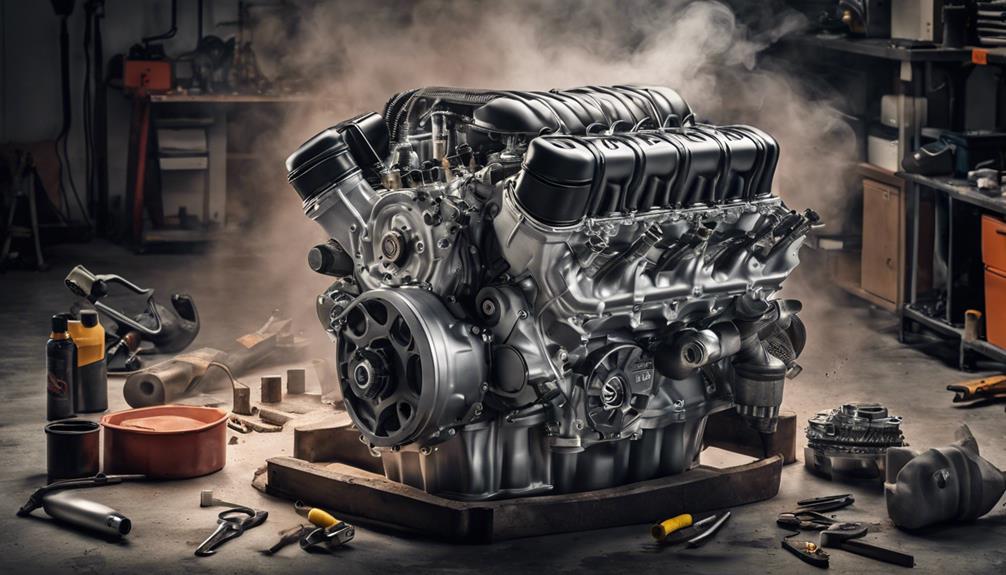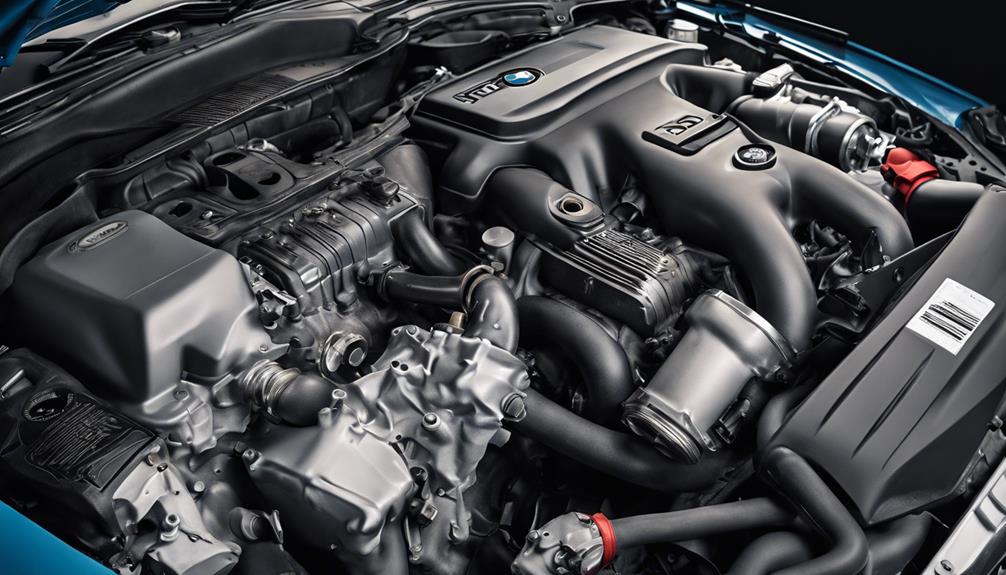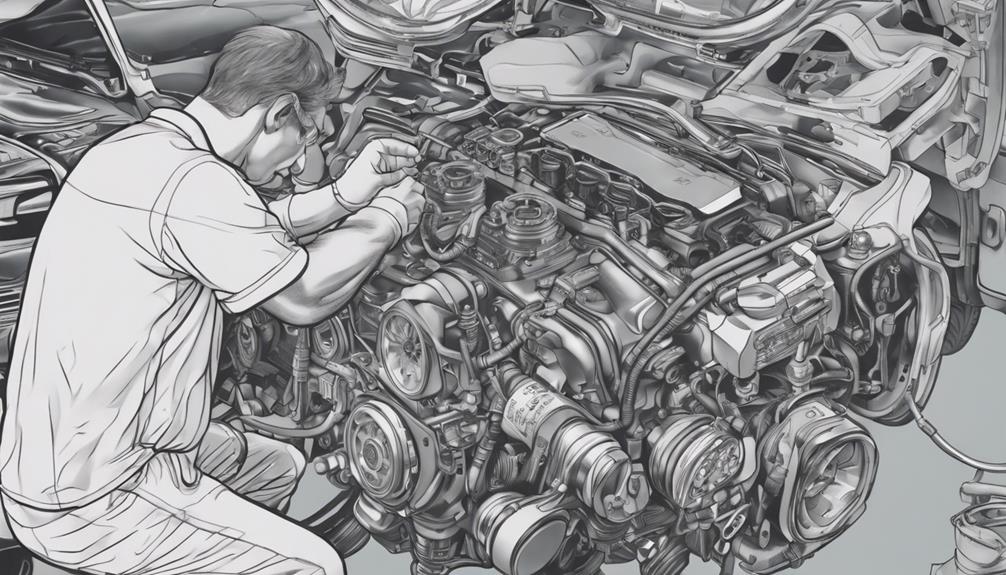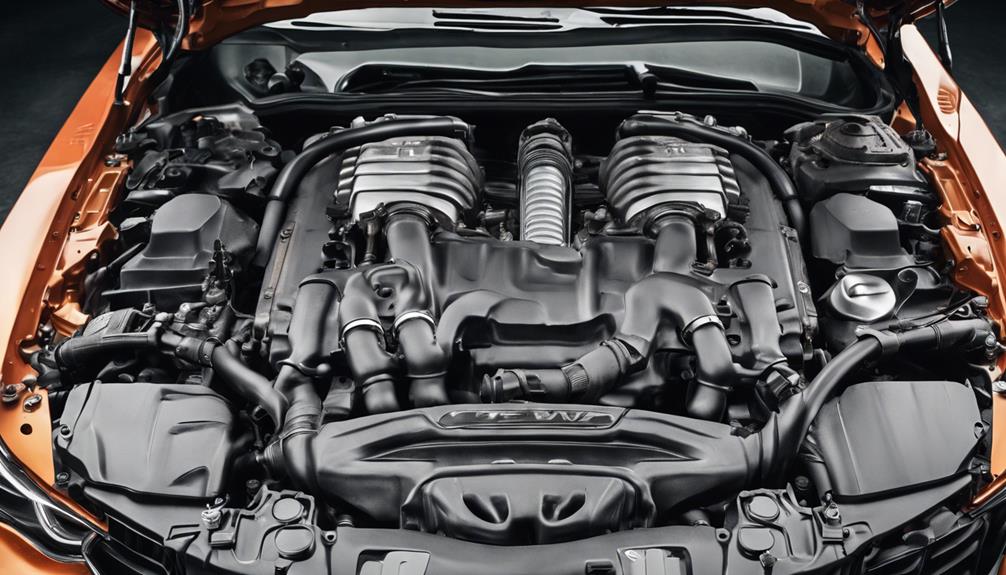When considering the most reliable BMW X5 engine, the M54 engine emerges as a top choice. It boasts a reputation for reliability and a user-friendly design highly regarded by the BMW community. This engine is known for its performance and durability, with only common issues like cooling system failures and valve cover gasket leaks. If you seek a blend of dependability and performance, the M54 engine is a solid option worth considering.
Key Takeaways
- The N55 engine in the BMW X5 is highly reliable, offering a harmonious blend of power and efficiency.
- Known for responsive performance, the N55 engine is a popular choice for reliability in the X5.
- Common issues like HPFP failures and wastegate rattle problems may occur with the N55 engine.
- The B58 engine in the BMW X5 is also reliable, balancing performance and efficiency effectively.
- Issues with the B58 engine may include HPFP failure, coolant leaks, and oil filter housing gasket leaks.
M54 Engine
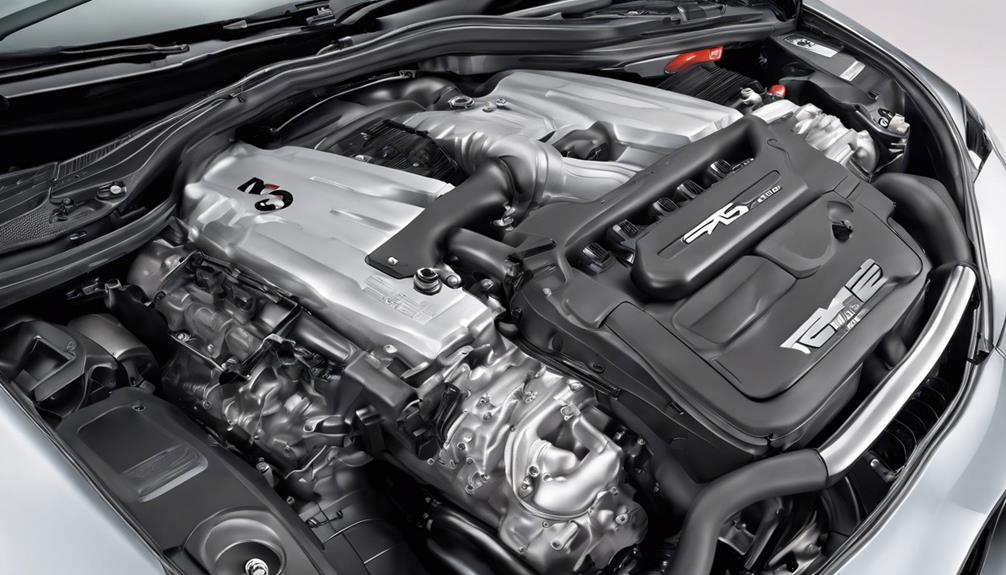
The M54 engine, a renowned naturally aspirated straight-6 powerplant by BMW, gained popularity for its reliability and straightforward design. Enthusiasts appreciated its robust nature and ease of maintenance.
However, like any engine, the M54 had its share of common issues. One prevalent concern was cooling system failures. Over time, components like the water pump or thermostat could malfunction, leading to overheating problems if not addressed promptly.
Another common headache for M54 owners was valve cover gasket leaks. These leaks could result in oil seepage, potentially causing a mess and decreasing engine performance if left unattended.
Despite these challenges, many M54 owners found these issues manageable with regular maintenance and proper care. By staying on top of these known problems, you could enjoy the reliability and performance that the BMW M54 engine was celebrated for among the BMW community.
N52 Engine
The N52 engine, which debuted in 2004, powers various BMW models like the E70 X5 and E90 3 Series. It's revered for its seamless operation, quick response, and efficient fuel consumption.
Equipped with a 2.5L or 3.0L straight-six configuration, the N52 engine boasts an aluminum head and a magnesium-aluminum compound block.
N52 Engine Overview
Featuring advanced engineering and innovative design, the N52 engine stands out as a prominent powerplant in BMW models introduced in 2004. This straight-six engine, found in vehicles like the BMW X5, comes in 2.5L or 3.0L displacements with power ranging from 174 bhp to 268 bhp.
Known for its aluminum head and magnesium-aluminum compound block for reduced weight, the N52 engine has faced common issues such as weaknesses in the cooling system, Vanos system failures, and oil leaks from various gaskets. Additionally, concerns like CCV system issues, misfires, and ignition coil failures have been associated with this engine.
Despite these challenges, the N52 engine remains a reliable choice for BMW enthusiasts.
Performance and Durability
Renowned for its impressive blend of power and reliability, the N52 engine showcases exceptional performance and durability in BMW models like the X5. Introduced in 2004, this engine featured in various BMW models, offering power outputs ranging from 174 bhp to 268 bhp.
With an aluminum head and a magnesium-aluminum compound block, the N52 engine was lightweight, enhancing its overall performance. Despite some common issues like cooling system weaknesses, Vanos system failures, and oil leaks, the N52 engine remained generally reliable.
Its smoothness, responsiveness, and fuel efficiency contributed to a driving experience that balanced power with durability. Overall, the N52 engine stood out as a solid choice for those seeking a dependable engine with good performance credentials.
Common Issues Addressed
Addressing common issues in the N52 engine involves identifying and resolving key maintenance concerns to guarantee peak performance and longevity. Some common issues to take into account are:
- Cooling System Weaknesses: Regularly check for any signs of coolant leaks or overheating to prevent potential engine damage.
- Vanos System Failures: Monitor the Vanos system for any issues with variable valve timing to maintain peak engine performance.
- Oil Leaks: Keep an eye out for oil leaks from various gaskets and seals to prevent loss of oil and potential engine damage.
Regular maintenance and timely repairs can help mitigate these common issues in the N52 engine, ensuring a smoother driving experience and longevity for your BMW X5.
M57 Engine
The M57 engine, a turbocharged diesel powerhouse introduced in 1998, boasts exceptional torque, fuel efficiency, and durability. This engine gained popularity in Europe and powered various BMW models like the E46 3 Series and E65 7 Series. While known for its strong low-end torque delivery and overall efficiency compared to gasoline engines, the M57 engine did face some common issues.
Swirl flap failures and injector failures were among the challenges that could affect its performance and reliability. To maintain the M57 engine's utmost reliability in BMW X5 vehicles, regular maintenance and careful attention to these potential issues were essential. Despite these challenges, the M57 engine's robust design and impressive performance characteristics made it a favorite among drivers seeking a balance of power and efficiency in their vehicles.
S54 Engine
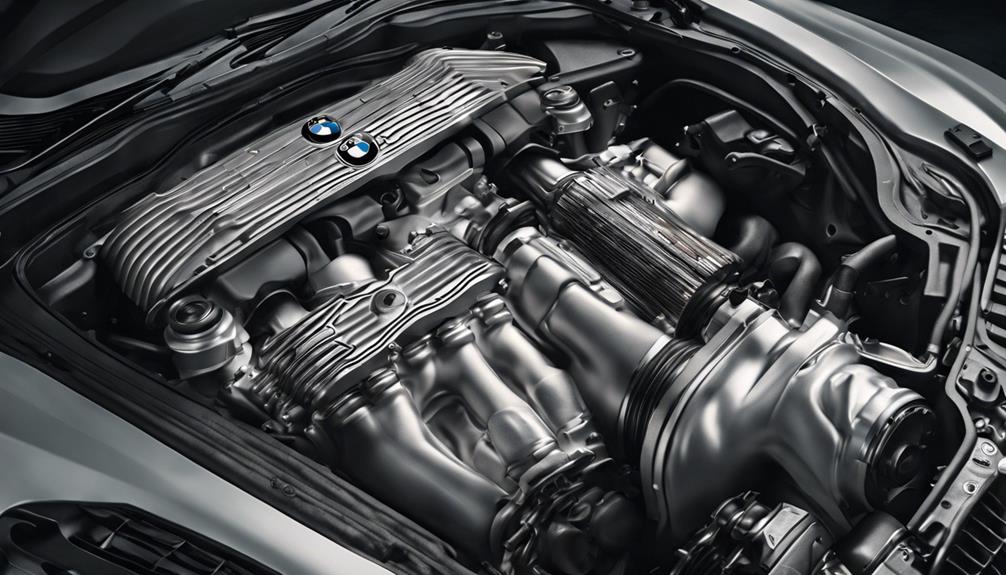
The S54 engine, recognized for its impressive high-revving capability, stands out for delivering outstanding performance in BMW models like the E46 M3 and Z4 M Coupe.
When contemplating the S54 engine, it's vital to acknowledge its power output and the accolades it has received, including the International Engine of the Year award.
Monitoring maintenance aspects such as rod bearing health and oil consumption is important to guarantee the durability and longevity of this renowned engine.
S54 Engine Performance
Renowned for its high-revving nature and impressive power output, the S54 engine debuted in 2000 as a replacement for the S50 engine in select BMW models like the E46 M3 and Z4 M Coupe. When it comes to S54 engine performance, there are key factors to take into account:
- The S54 engine is known for its high-revving capability, delivering exhilarating performance on the road.
- Despite its power output, issues such as rod bearing failures and oil consumption can impact its reliability over time.
- Enthusiasts appreciate the S54 engine for its distinctive sound and power delivery, enhancing the driving experience for BMW aficionados.
Understanding these performance aspects can help owners maintain their S54 engine for peak enjoyment and longevity.
S54 Engine Durability
With a reputation for high-revving power and acclaimed performance, the durability of the S54 engine in BMW models like the E46 M3 and Z4 M Coupe has been a subject of admiration and scrutiny among enthusiasts. Despite common issues such as rod bearing failures and oil consumption, the S54 engine remains popular for its performance and endurance in the BMW lineup.
| S54 Engine Durability | |||
|---|---|---|---|
| Year of Debut | 2000 | ||
| Performance | High-revving | ||
| Common Issues | Rod bearing failures, oil consumption | ||
| Enthusiast Perception | Admired for durability and performance |
S54 Engine Maintenance
For peak performance and longevity of the S54 engine in your BMW model, consistent monitoring of oil levels and adherence to scheduled maintenance are essential. When it comes to maintaining your S54 engine, here are three important steps to keep in mind:
- Check Oil Levels Regularly: Due to potential oil consumption issues in the S54 engine, frequent checks can help prevent low oil situations that may lead to engine damage.
- Address Rod Bearing Concerns: Given the history of rod bearing failures in the S54 engine, proactive inspection and replacement can prevent catastrophic engine failure.
- Follow Scheduled Maintenance: Adhering to the manufacturer's recommended maintenance schedule is crucial for ensuring the S54 engine's reliability and performance over time.
M30 Engine
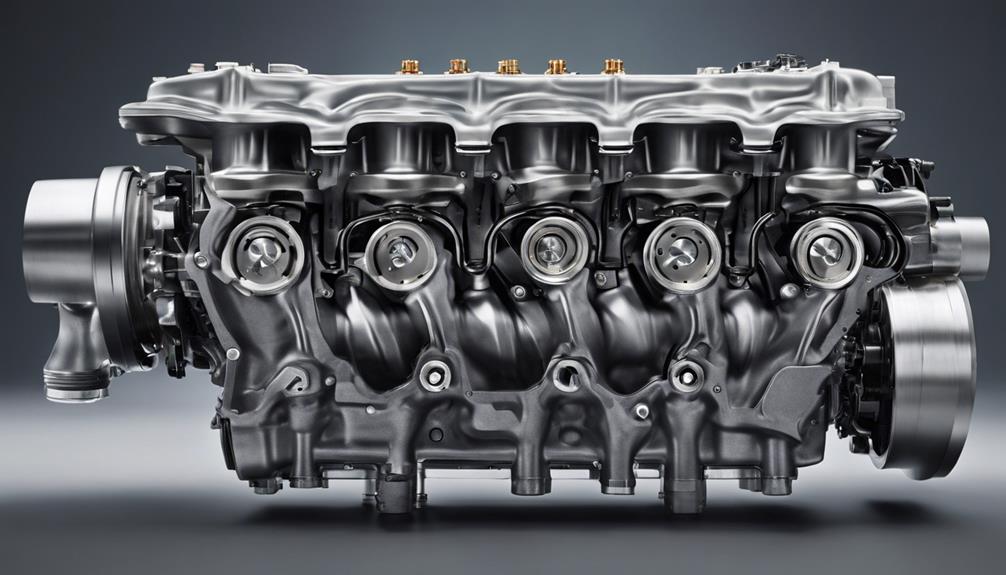
The M30 engine, introduced in 1968 as a replacement for the M10, quickly gained a reputation for its exceptional smoothness, reliability, and simplicity. This engine powered models such as the E3 2500-3.3 Li and E28 5 Series, showcasing its versatility and longevity. One of the longest-lived BMW engines, the M30 lasted over 20 years, thanks to its robust design. While it offered consistent performance and durability, common maintenance issues included oil leaks and timing chain wear, typical for its era.
| M30 Engine | Features |
|---|---|
| Reliability | Exceptional |
| Longevity | Over 20 years |
| Maintenance | Oil leaks, Timing chain wear |
The M30 engine was appreciated by drivers for its reliability, delivering a smooth driving experience and standing the test of time across various BMW models.
S65 Engine
Debuting in 2007 as a replacement for the S62 engine, the S65 engine distinguished itself in the BMW lineup with its high-revving performance and unique engine sound. This powerhouse exclusively powered the E90, E92, and E93 M3 models during its production, leaving a lasting impression on enthusiasts with its exceptional characteristics. Here are some key points to ponder about the S65 engine:
- High-Revving Character: The S65 engine was renowned for its ability to rev up to an impressive redline, delivering a thrilling driving experience favored by performance enthusiasts.
- Throttle Actuator: Despite its performance prowess, the S65 engine faced common issues with throttle actuator failures, necessitating attention to guarantee functionality.
- Advanced Technologies: Featuring a lightweight aluminum block and advanced technologies, the S65 engine was designed to optimize performance and power delivery, enhancing the overall driving dynamics of the M3 models.
Whether you appreciate its high-revving nature or distinctive engine sound, the S65 engine remains a standout feature in BMW's performance legacy.
N55 Engine
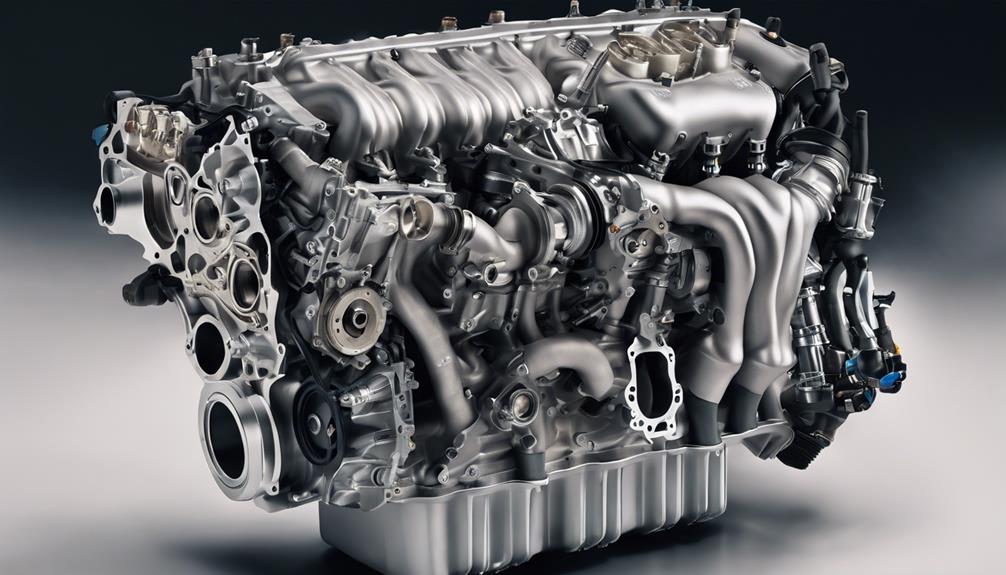
With its twin-scroll turbocharger and innovative Valvetronic system, the BMW N55 engine exemplifies a harmonious blend of power and efficiency. This straight-six engine, known for its responsive performance, is a popular choice in BMW 5 Series and X5 models. When properly maintained, the N55 engine is valued for its reliability.
However, there are some common issues to be aware of. High-pressure fuel pump (HPFP) failures and wastegate rattle problems have been reported by some owners. Additionally, oil leaks from gaskets and occasional electronic water pump (EWP) failures are among the maintenance concerns associated with the N55 engine.
Despite these potential issues, the N55 engine remains a strong performer and can offer a satisfying driving experience in BMW vehicles. Regular maintenance and addressing any known issues promptly can help ensure the longevity and dependability of the N55 engine in your BMW.
B58 Engine
After exploring the N55 engine's performance and maintenance considerations, shifting attention to the B58 engine reveals a newer powerhouse in BMW's lineup known for its blend of performance and efficiency. The B58 engine, introduced in 2015 with the F30 340i model, replaced the N55 engine, offering a gasoline straight-six design with 3 liters of displacement. This engine is praised for its reliability and performance, but there are some common issues to be aware of:
- Common components of the B58 engine include an aluminum head and block, forged crankshaft, and connecting rods.
- Some common issues with the B58 engine include High-Pressure Fuel Pump (HPFP) failure, coolant leaks, and oil filter housing gasket leaks.
- Other potential problems with the B58 engine include timing chain tensioner failure and carbon buildup on intake valves.
Understanding these aspects can help you make informed decisions regarding the reliability and maintenance of a BMW equipped with the B58 engine.
Frequently Asked Questions
Which Year BMW X5 Is the Most Reliable?
For the most reliable BMW X5, newer models, particularly 2019 and beyond, offer improved reliability. Ensuring regular maintenance and considering diesel engines or specific gasoline models like the 35i from 2012-2013 can enhance your ownership experience.
What BMW Engine Is Most Reliable?
When you assess BMW engines for reliability, consider diesel models for their durability and longevity. Gasoline options like the 3.5 turbo and 35i have good track records too. Your choice impacts performance and maintenance needs.
What Is High Mileage for a BMW X5?
High mileage for a BMW X5 depends on various factors like driving conditions and maintenance. Regular care can extend engine life even past 100,000 miles. Diesel engines are known for durability, handling high mileage well.
What Is the Engine Life of BMW X5?
For your BMW X5, engine life depends on maintenance, driving habits, and care. With regular oil changes, timely repairs, and adherence to service schedules, your engine can last well over 200,000 miles. Diesel engines offer durability.
Conclusion
Overall, the B58 engine stands out as the most reliable option among the BMW X5 engines. Known for its durability and performance, the B58 engine offers a balance of power and efficiency that drivers can depend on.
With a reputation for longevity and minimal maintenance issues, this engine is a top choice for those seeking a reliable driving experience in their BMW X5.






